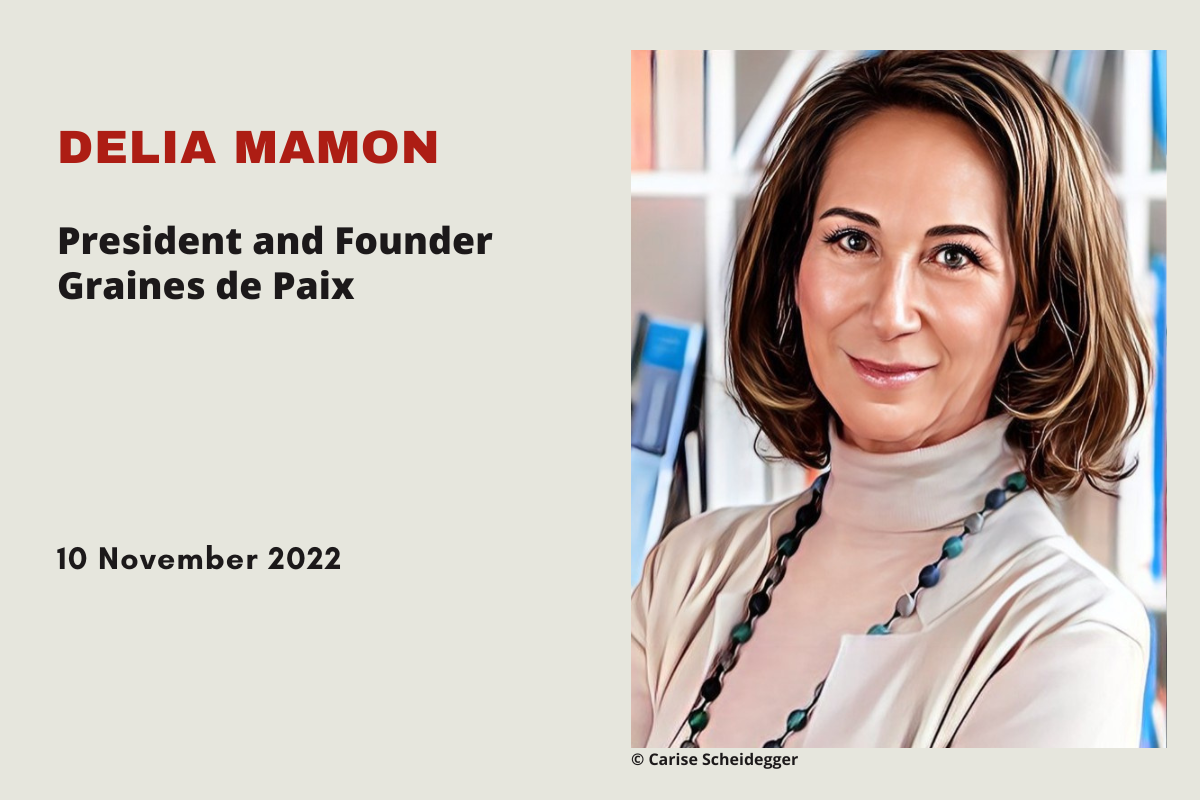The Interview | Delia Mamon
 |
How would you present your organization in a few words? What entails your position? What is your goal? |
In countries around the world, education is undergoing profound changes. Seeds of Peace engages with education authorities to help them navigate these changes by providing values, skills, and methodologies in support of three social objectives: ensure every pupil can grow and thrive, prevent violence and radicalization, and promote peace (in society and with nature). Our approach focuses on the culture of peace, not as a subject matter but as a way of teaching across the curriculum that places greater emphasis on giving every child an opportunity to thrive.
Graines de Paix has won two international awards: the UNESCO-Hamdan 2022 Award (for teacher training) and the 2019 Smart Peace Award of Leaders for Peace (for education and peace).
As the president and founder of Graines de Paix, my objective is to make education more humanistic, positive, inspiring, and committed to creating a better world by applying tangible, evidence-based approaches.
 |
Among the concentration of actors in Geneva (IOs, NGOs, permanent missions, academia, and the private sector), who do you work with and how? |
Our NGO has had ECOSOC consultative status since 2011. We work closely with the International Bureau of Education (UNESCO) and, through the RECI network (Education and International Cooperation Network), with a range of NGOs working on education; we occasionally contribute to programmes offered by the University of Geneva. We are one of several Geneva-based organizations working to realise the Rights of the Child in developing countries, for example as a member of the Safe-to-Learn working group of the Global Partnership to End Violence against Children (Geneva office). I am also a member of the Diplomatic Club of Geneva.
 |
What are the strengths and weaknesses of Geneva with regards to the development of your activity? |
I set up Graines de Paix in Geneva because of the presence of the UN and many other international agencies. We are trying to fill a historic gap, namely the role of education in peacebuilding. The persistence of violence and war shows that culture, religion, laws, and diplomacy are unable on their own change the paradigm. That is even truer for radicalization. By rethinking education to foster values and skills across the curriculum, education can become a key contributor to peace, as many countries and organizations have already realized.
When education is reframed in terms of developing pupil’s social skills, it becomes recognized by international organisations as an important determinant of peace. I have no doubt that at some point, diplomats and other actors in peace negotiations will start to include education in their approaches.
 |
|
If, by transforming education, we can develop values and skills that reinforce the culture of peace, then we may finally realize the dream of 1919 and 1947 for world governance: a space of cooperation and convergence that works efficiently and democratically to resolve blockages between power blocs. A space whose stakeholders are equipped with the necessary values and skills to build a strong, inspiring, and enduring framework for peace.
 |
|
The Swiss system of governance is internationally recognized as a model for advancing social peace. Could the Swiss education system also gain similar recognition, and if so, how?
